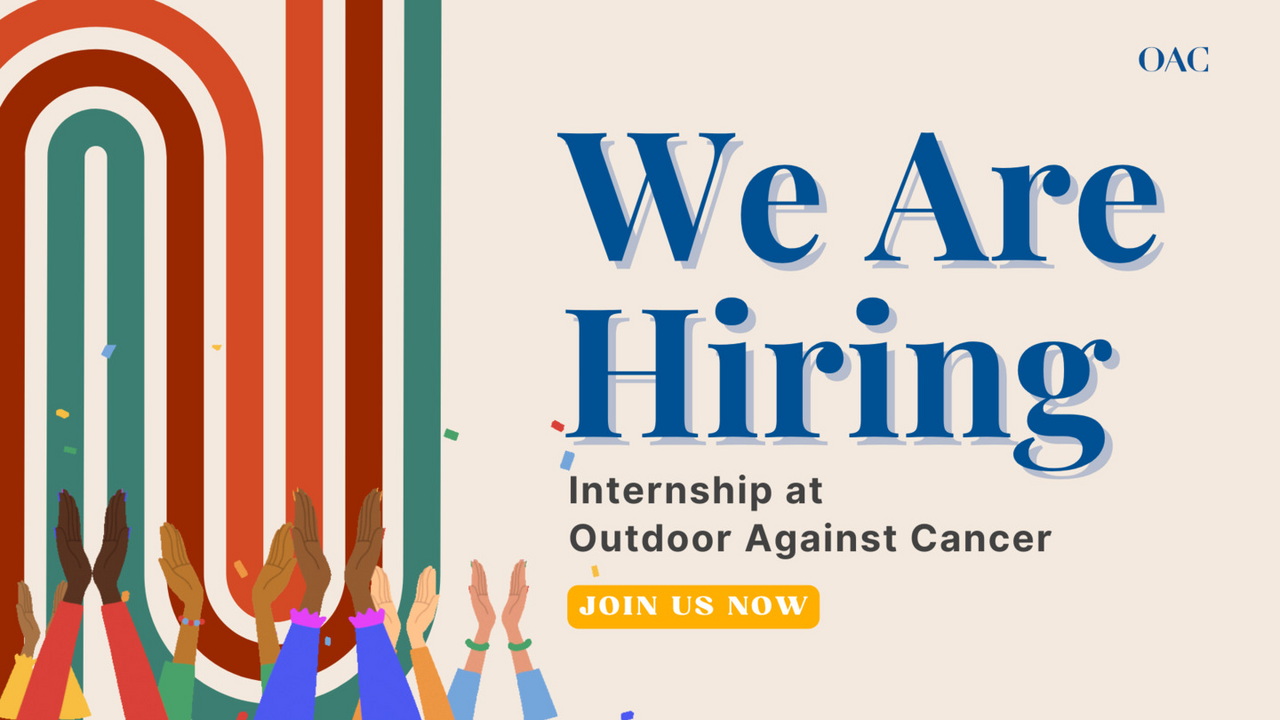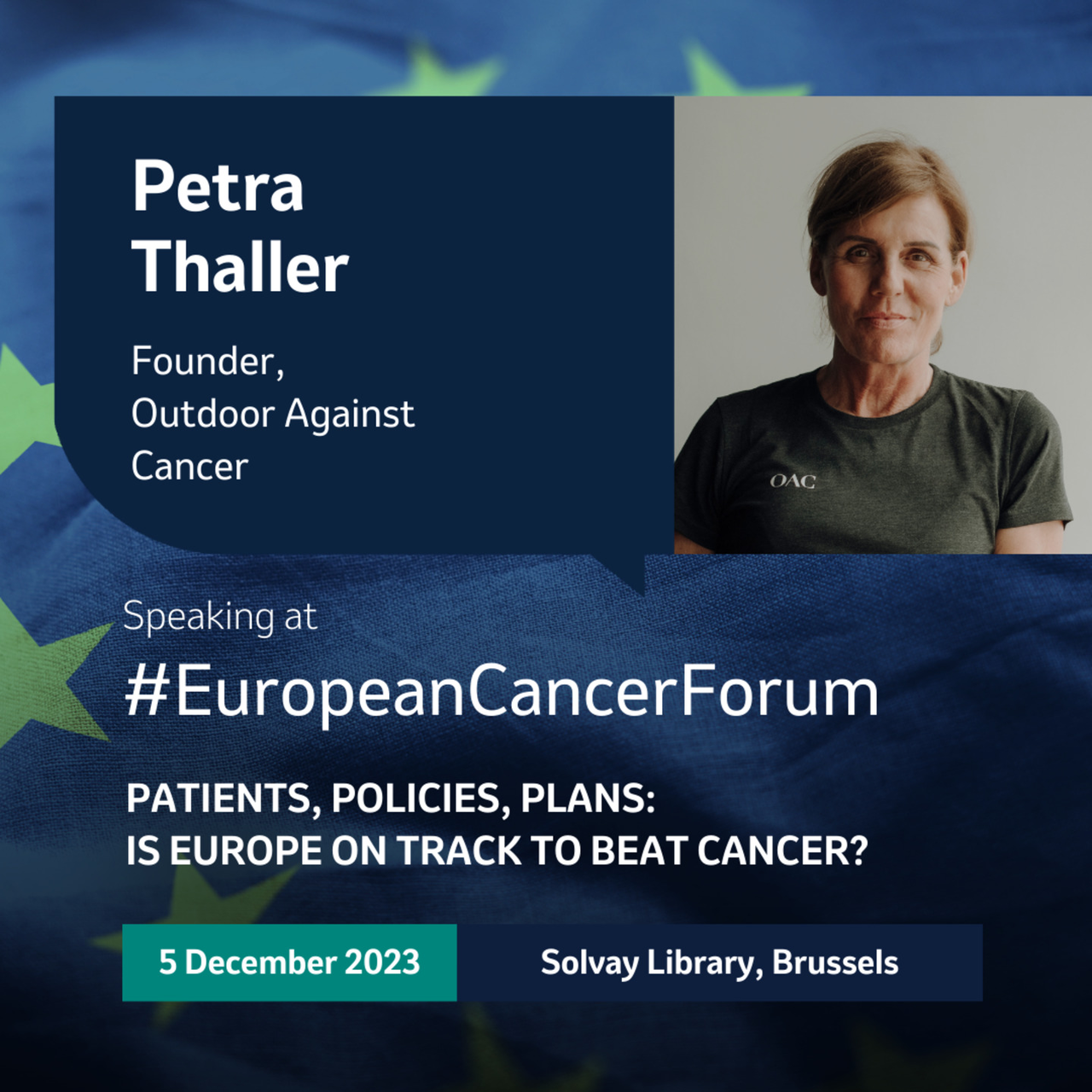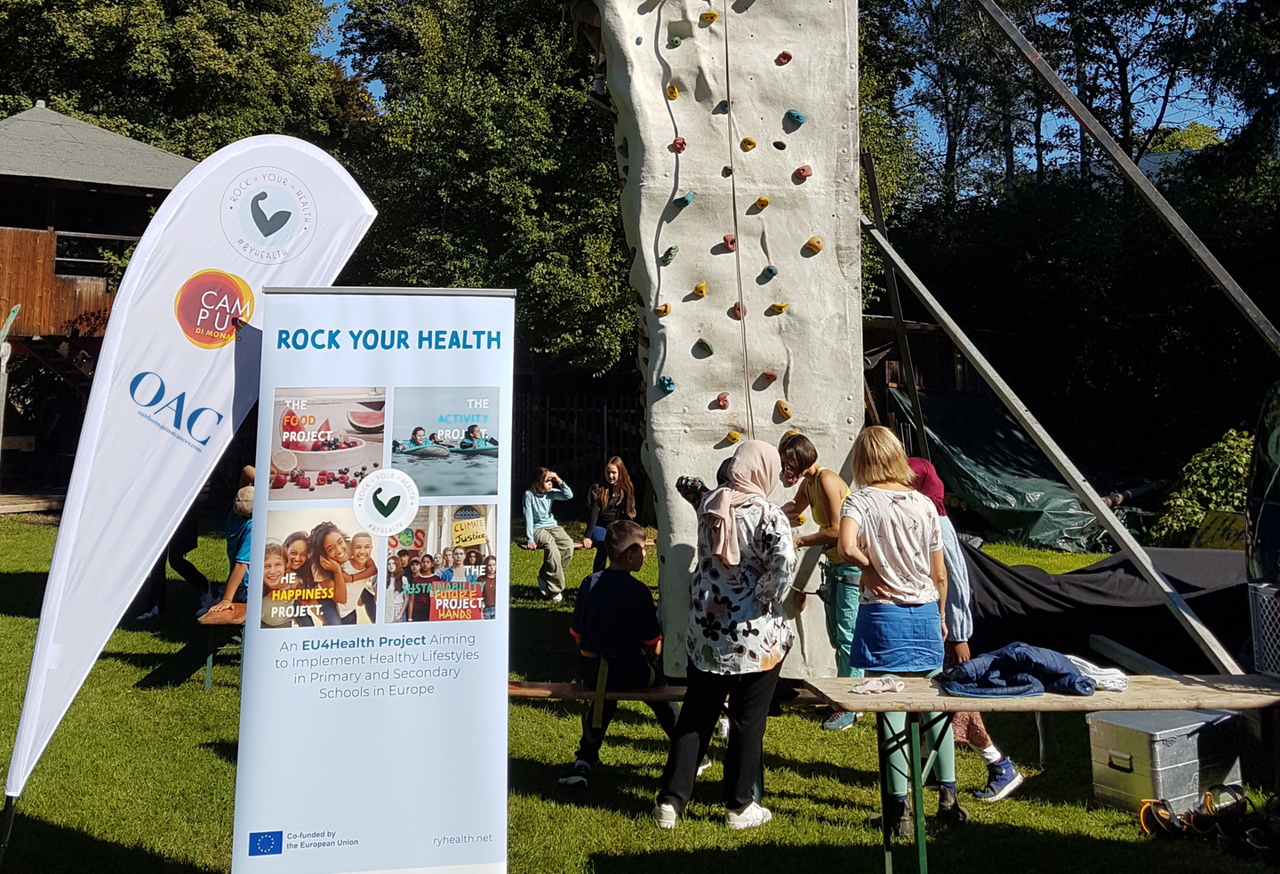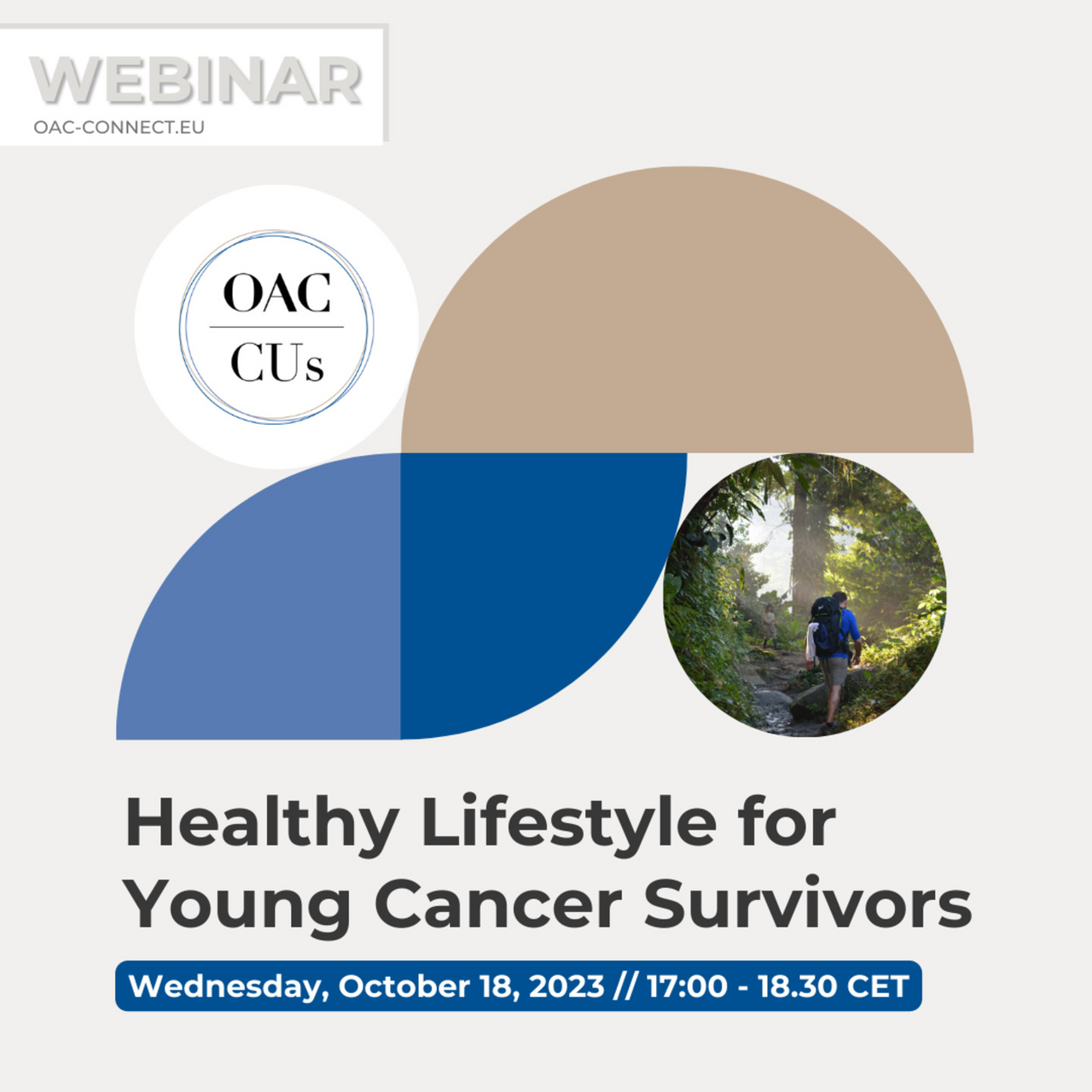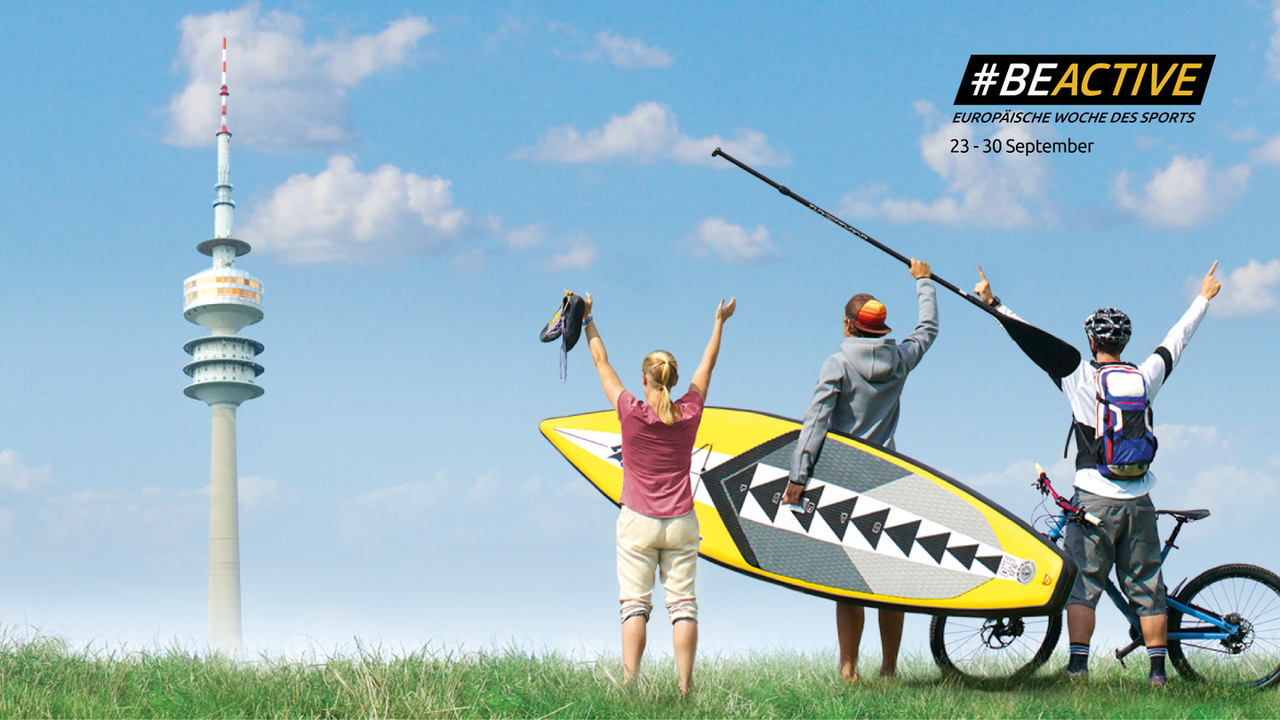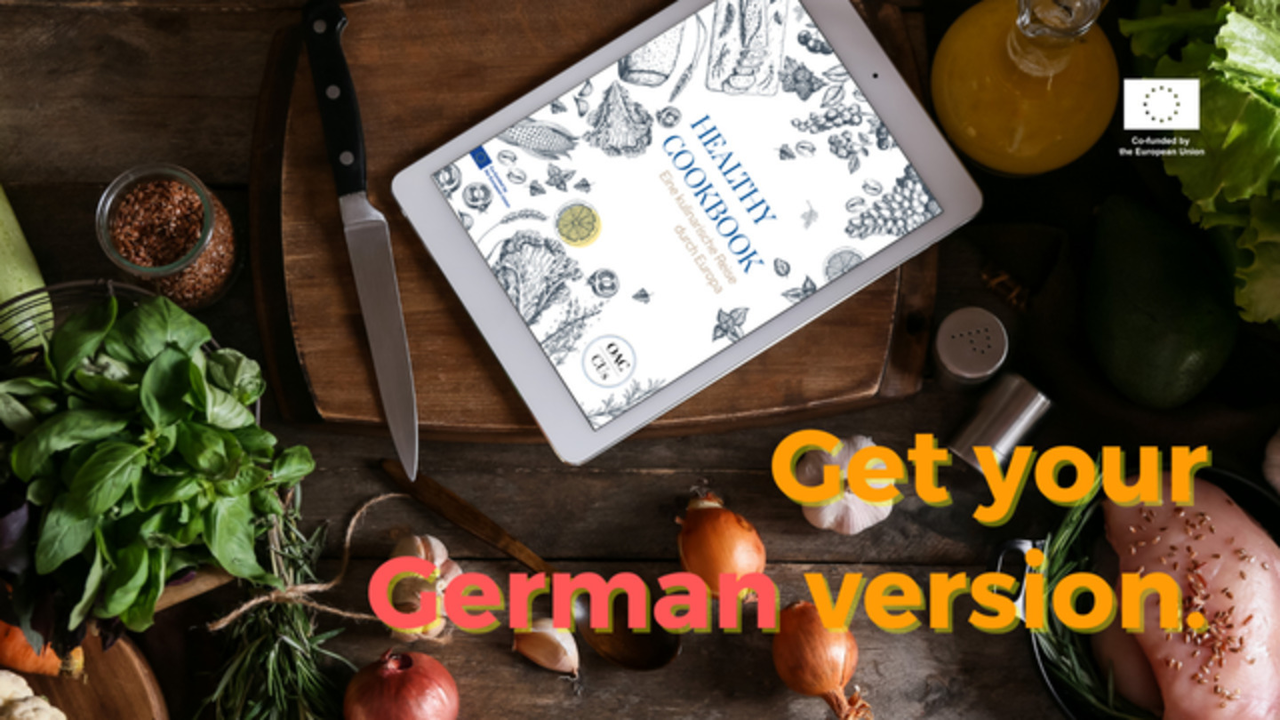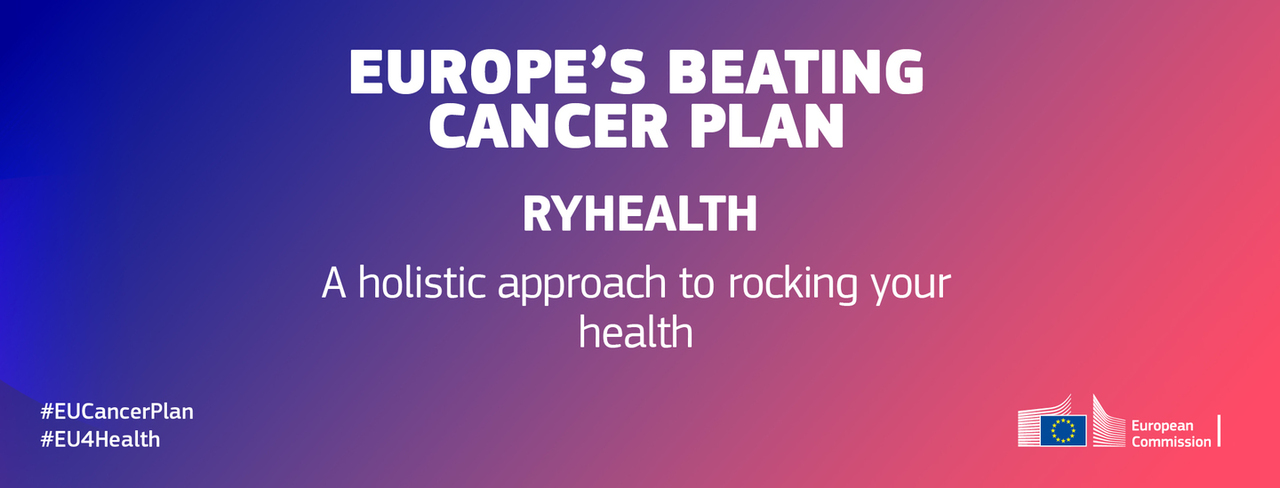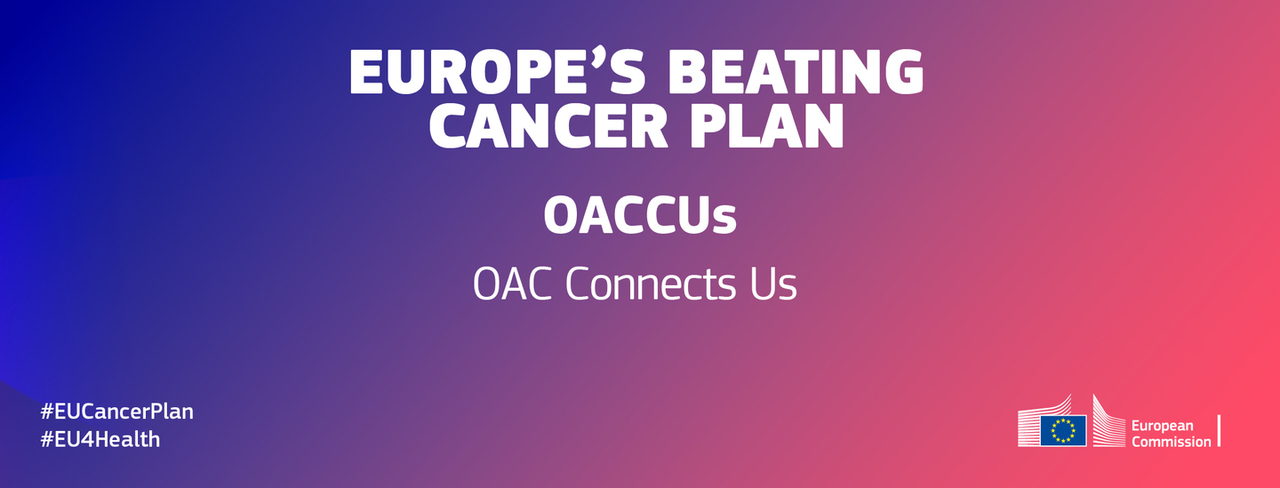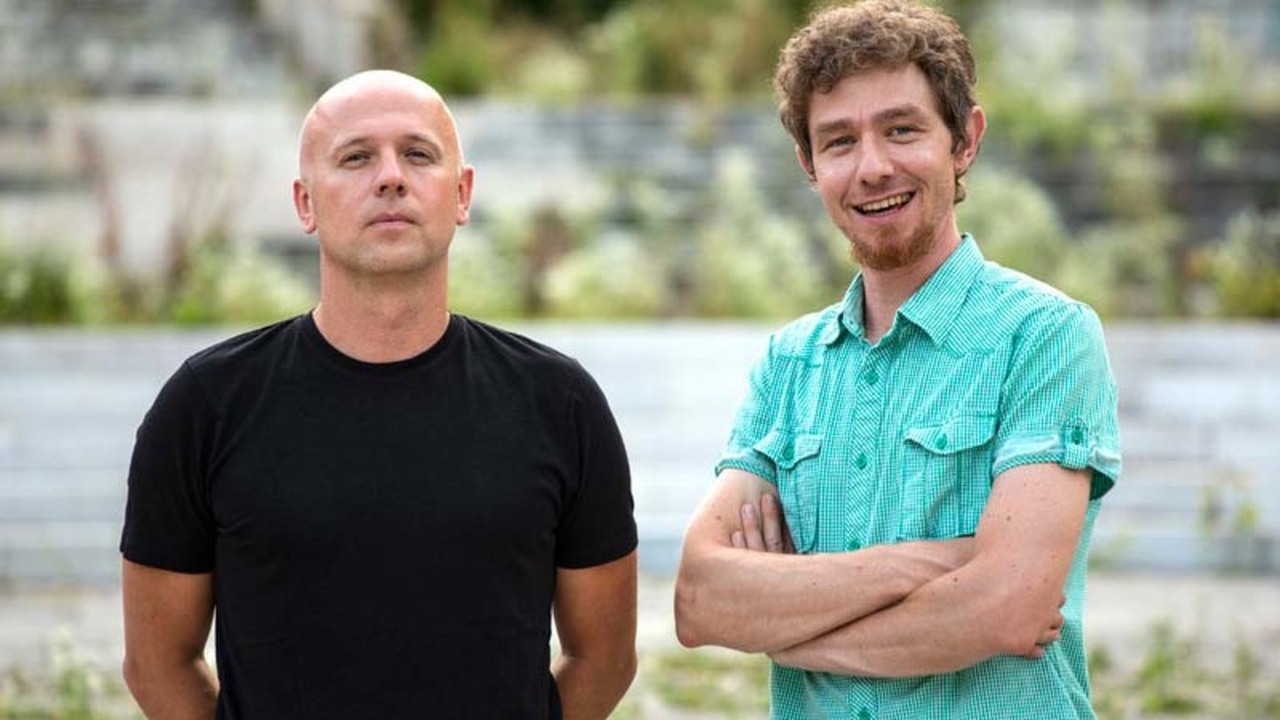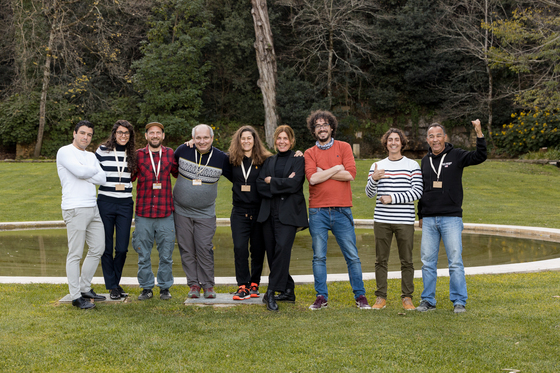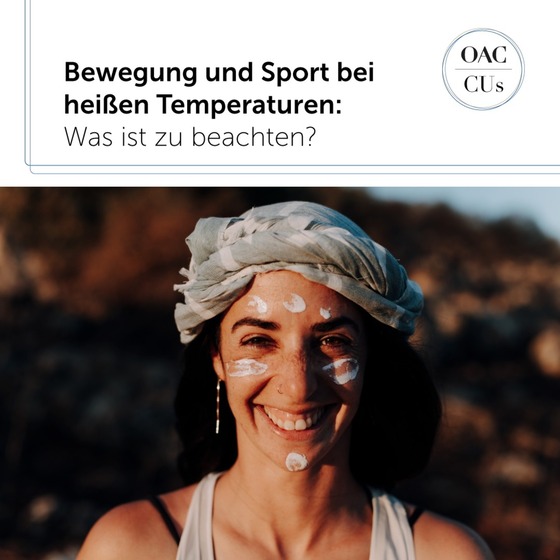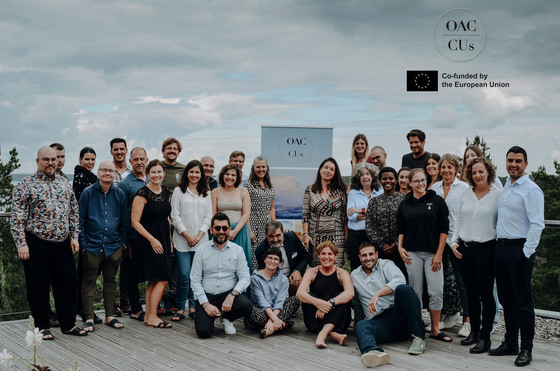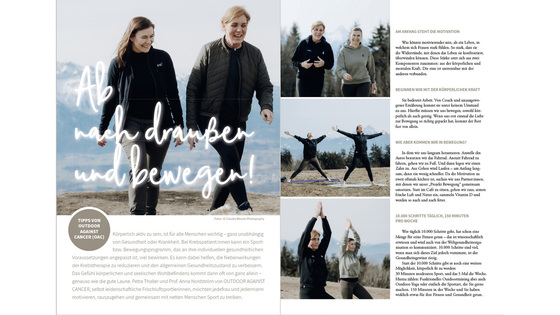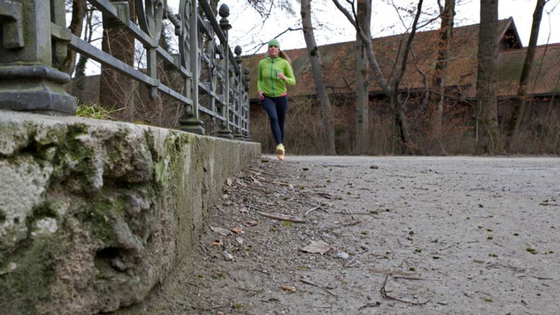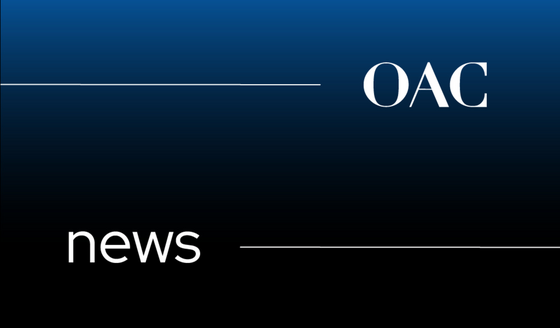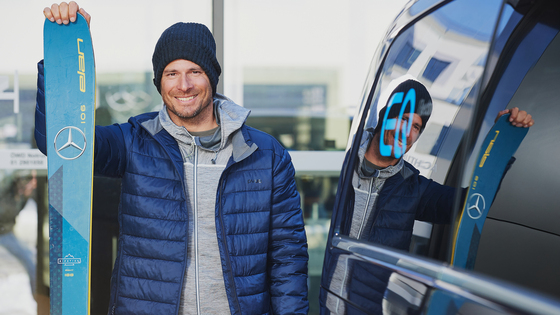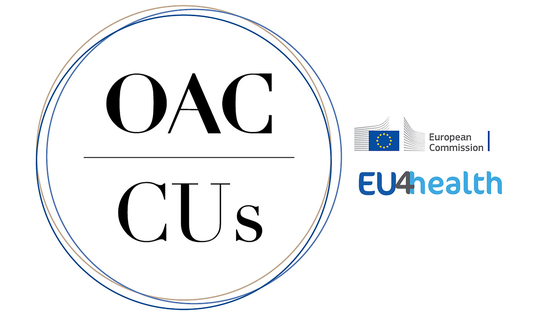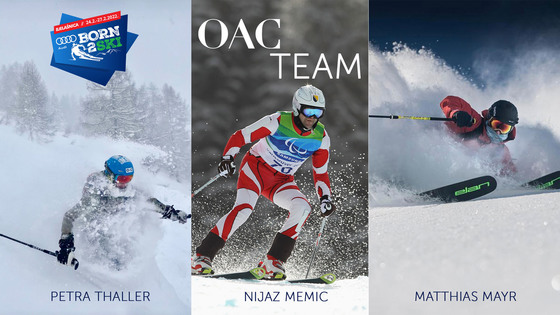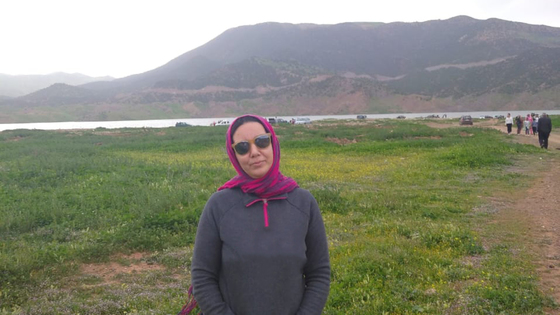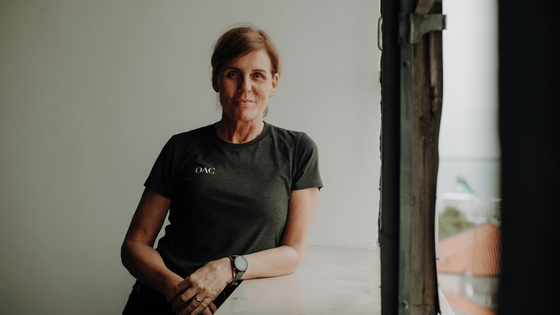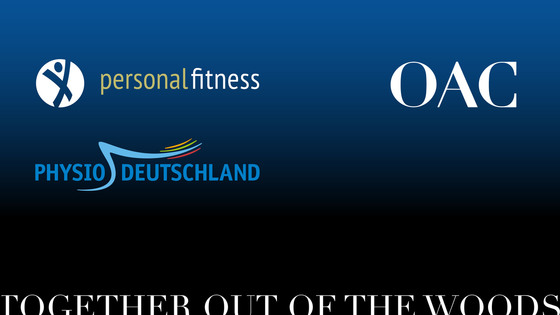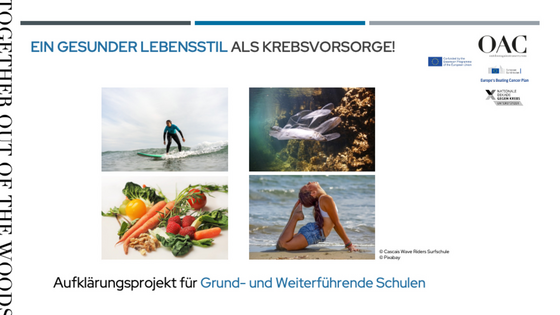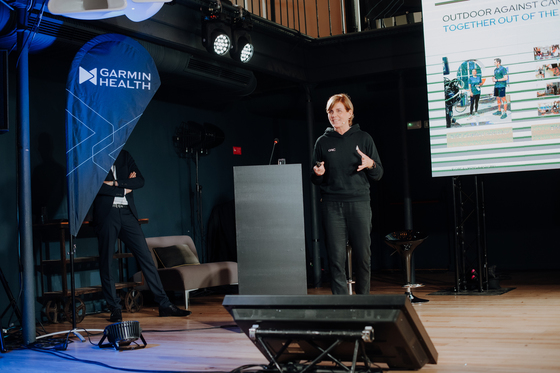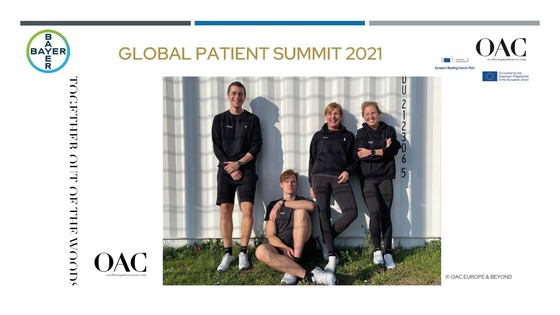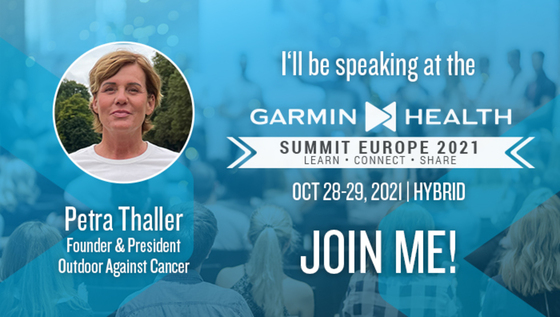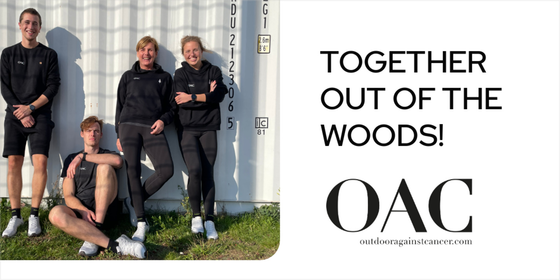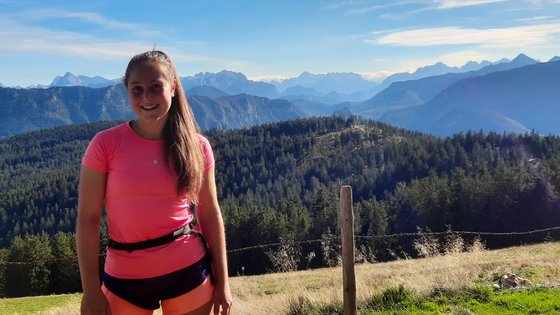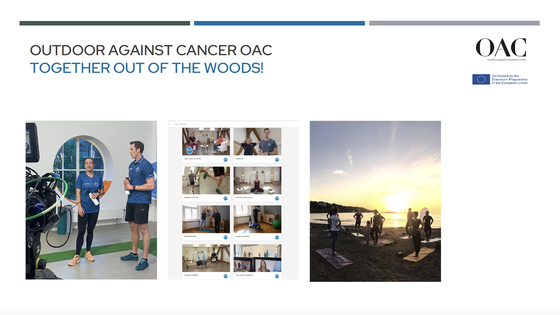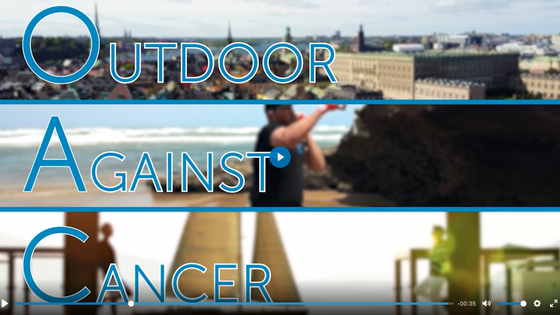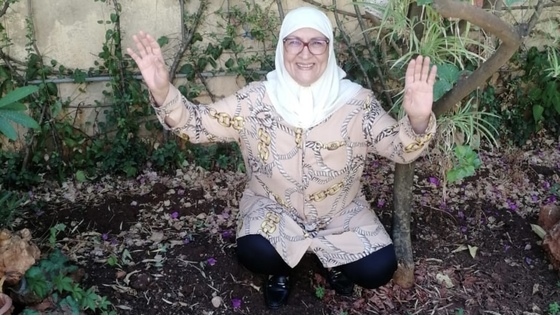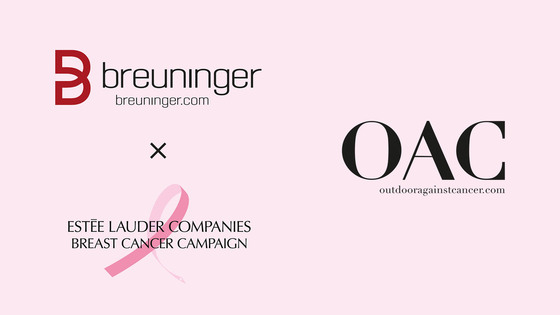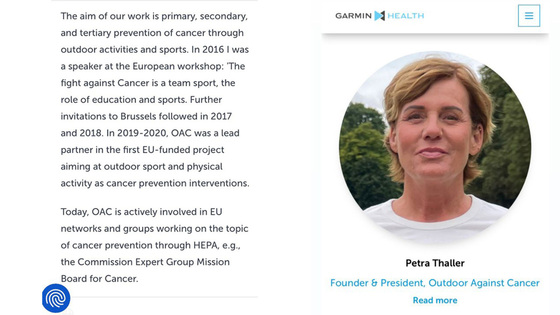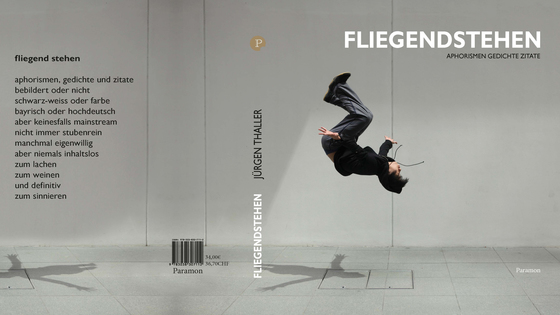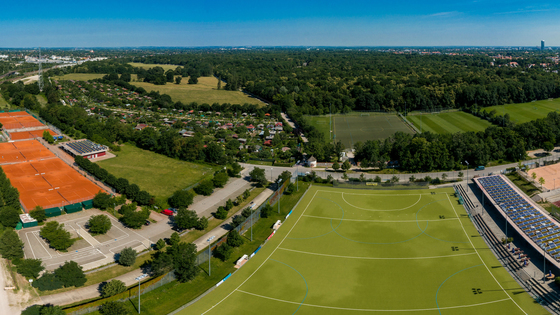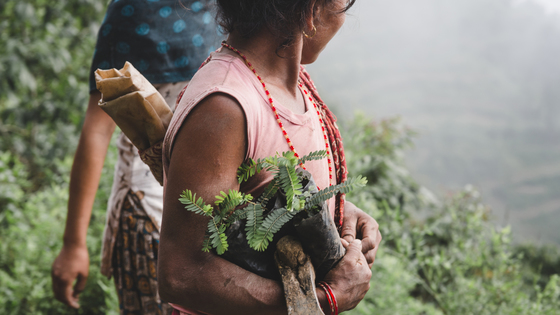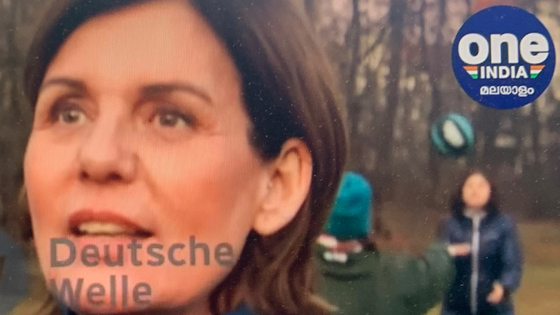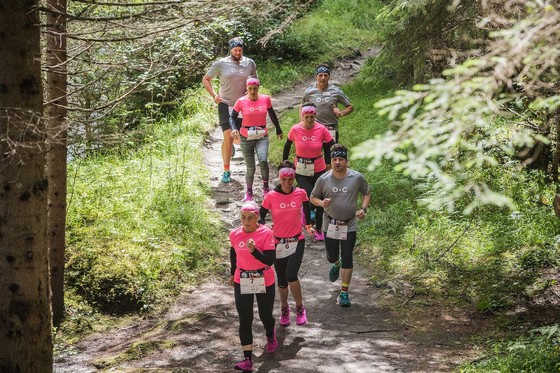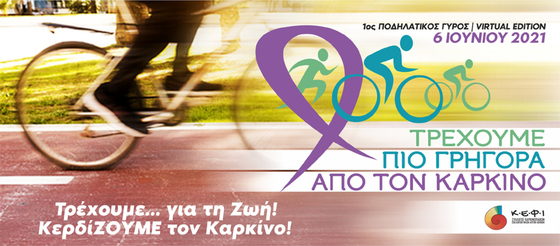Article
STATUS QUO AND FUTURE OF OAC, AN INTERVIEW WITH PETRA THALLER, FOUNDER & PRESIDENT OAC
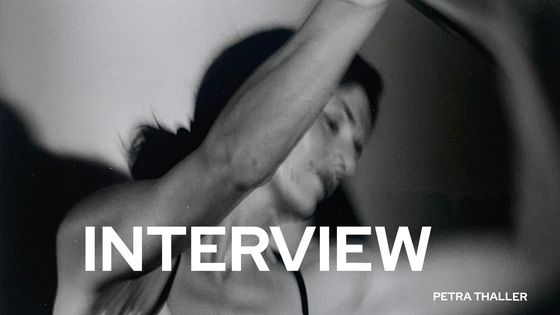
Outdoor against Cancer OAC came into being because Petra Thaller herself was diagnosed with breast cancer in 2015. Already at that time, during her own cancer disease, she founded OAC and pursued the vision of an international outdoor sport and activity network as primary, secondary and tertiary prevention against cancer. What has become of this vision - a stocktaking by a woman who just can't stop moving forward. A talk about the status quo and future of OAC in Europe and beyond.
1. Describe in a few words the main objectives of OAC.
1. Describe in a few words the main objectives of OAC.
OAC is the Europe-wide umbrella organization for outdoor exercise and sports programs for cancer patients, their families and friends. Thanks to the OAC online certification (60 continuing education points for physicians, certified by the Bavarian Medical Association), all professional groups involved in the health care system can continue their education in the area of exercise, sports and cancer. Europe-wide digital networking of offers for our target group is the focus of our current work, which focuses on sustainable, contemporary, visionary and scientifically based thinking and action. Not to forget environmental protection and sustainability in all areas of life. All these main goals are anchored in the DNA of OAC.
2. What is OAC's vision?
To bundle existing, scientifically based knowledge on the topic of exercise, sport and cancer under one roof and to turn it into offers for cancer patients, their families and friends. In order to be able to guarantee the same standard throughout Europe and beyond, our OAC online certification will be internationalized. In this way, we ensure a uniform, high-quality and scientifically based standard. Those who train with an OAC Certified Instructor can also be sure that this outdoor exercise and sports offer is perfectly tailored for cancer patients and that the instructing OAC Certified Instructor can fall back on extensive knowledge regarding exercise, sports and cancer.
3. You had once said, "If I had known earlier how important exercise and sports are in the fight against cancer, I would have gotten cancer earlier." What exactly do you mean by that?
Outdoor activities and movement in nature have always been an important part of my personal sporting history. During my own cancer therapy, I experienced that a physically and mentally fit and stable person can 'endure' significantly more and also perform during therapy. So the first step to found OAC was already done during my own therapy. The idea was born on a ski tour during my own cancer illness. With chemo in my body and new ideas in my head. I was on the mountain with a friend in winter and asked myself why other people don't do that: go out during chemotherapy, get other thoughts, enjoy life, get healthy and stay healthy.
However, we take the term outdoor literally - outdoors in front of our own door, in the best case in the nearby nature - so also in the green islands of the big city.
4. There is almost no chronic disease that can not be addressed with outdoor sports, why has not yet arrived in society?
The answer to this is not so simple. Possibly because we humans are lazy and always or mostly take the easy way out in life. Sitting is easier than walking, driving is easier than cycling, consuming is easier than engaging, giving responsibility is easier than taking responsibility. And let's face it, it takes a lot of discipline to exercise regularly. The recent pandemic has shown us that outdoor sports and exercise absolutely fit people. Looking at the 2020 Strava statistics, 73 million athletes worldwide uploaded their workouts to the Strava platform last year, with around two million new Strava users joining every month. The world's population is 7.8 billion people. That means 10% of the world's population is on Strava, people who have sports and exercise in their blood and feel or want to feel part of this community.
The problems are obvious and are motivation and personal responsibility. In Germany, we are used to having everything delivered to us free of charge. If we have a health problem, we often hand over responsibility. Whereby it is indispensable to face the issue of personal responsibility. Patients can act on their own responsibility while undergoing therapy. Thus, OAC Outdoor Sport and Exercise is to be seen as a self-responsible activity.
This relieves the health care system financially and strengthens the individual. Of course, medical therapy is always the priority, so as not to leave a false impression here, but acting on one's own responsibility, not only in terms of outdoor sports and exercise, but also in terms of complementary medical therapy, nutrition and psychoeducation play a supporting role in the context of a successful therapy. All this results in a higher quality of life, no matter how long life lasts.
5. What exactly is currently happening at OAC?
We are working on a Europe-wide outdoor exercise and sports network. OAC goals are:
- Free online sports and exercise programs (including Mobilisiation, Strengthening, Psycho Education and Info, Talk & Facts) for cancer patients, their families and friends - currently available in four different languages and for free download.
- We offer our online OAC certification in English, German, Greek, French, Turkish and are working on offerings in additional languages such as Portuguese, Italian, Spanisch …
- Q3 2021, we will launch two more digital products that have never existed in this way for people with cancer, their friends and family.
6. You always emphasize cancer patients, families and friends, why?
To support the healing process, a well-functioning private network - in addition to the medical setting - is extremely helpful. Therefore, all our offers are always open to the family and friends environment. Rehab and preventive measures, which are covered by health insurance, are understandably 'only' for those who are ill. This is where OAC comes in and once again personal responsibility. Cancer is not just the disease of the sufferer, but extends to the family environment and friends. Not only can these be supportive, but they can also do something for their own health.
7. How do you manage to anchor OAC in the European Union and beyond?
Our work within the framework of projects funded by the European Union is of course very helpful. Take our first EU project OAC: my goal. Here, within the framework of the Collaborative Partnership, OAC has always been the driving force behind what is happening, and we are using the scientific findings and continuing them in a sustainable way. That is the purpose of the EU funding idea. So we have partners in different countries and progress from that base. For 2022, OAC is a partner in five further EU funding applications in which the know-how already developed will be applied and further advanced in order to anchor outdoor exercise and sports offers in relation to primary, secondary and tertiary prevention in other European countries. In this way, all professional groups involved in the health care system can be trained accordingly. One of our highest goals is to actively participate in the implementation of Europe's Beating Cancer Plan.
8. The central starting point of OAC is the topic of cancer prevention through outdoor sports and exercise. How do you personally manage to integrate this into your life in the city?
In which I also have to outsmart my inner pig every day anew. After my work is very time-consuming, I always get up at the same time, I usually do sports first thing in the morning, either outdoors or indoors, depending on the weather and my personal preference for the day. In terms of exercise and nutrition, I follow a stringent plan, but I also enjoy it very much. I think it's great to be fit and know that I'm doing everything I can to stay healthy. That's what I understand by personal responsibility. Many friends claim that I work too much, that I am a workaholic. But that is not true. If work is fun and also meaningful, the plan of tension and relaxation is right, you can work more without being stressed. When the stress comes, I take a step back, which fortunately rarely happens.
9. Keyword: Daily routine? What tips can you give readers from your personal experience as a former cancer patient?
The right way is always the way of small steps and overcoming crises. Nobody ever said that changing lifestyle from an inactive to a life in motion is easy. However, with our innovative digital offerings, the path to a life in motion will be much easier in the future and will also be enjoyable, so let us surprise you.
10. Any final comments Ms. Thaller?
Germany is a paradise compared to other countries in and outside Europe for people with cancer. I know that this is a provocative statement, but it corresponds to reality. There is no necessary medical therapy that we do not get in Germany. The health insurance companies, whether statutory or private, cover these costs. Each individual can take additional personal responsibility for himself or herself on the path to a healthier future. In Germany, a sense of entitlement prevails that is no longer in keeping with the times. If we take preventive measures, we can also reduce the number of people who develop cancer, for example, in the long term. Many people are not aware of the connection between lifestyle and cancer, and I would like to see an information campaign by public authorities such as the Federal Ministry of Health. The 'Give AIDS no chance' campaign was a great success and certainly saved many lives.
I am excited and hopeful that Europe's Beating Cancer Plan will also be based in this area. Prevention and screening are the main pillars in the fight against cancer in Europe and indispensable beyond. Cancer prevention includes not only screening, but also prevention such as physical activity, a balanced diet, and limiting alcohol consumption and smoking.
The beauty of outdoor sports and exercise is that it usually goes hand in hand with environmental awareness, healthy eating, abstaining from excessive alcohol consumption as well as tobacco.
Summary OAC 2015-2021
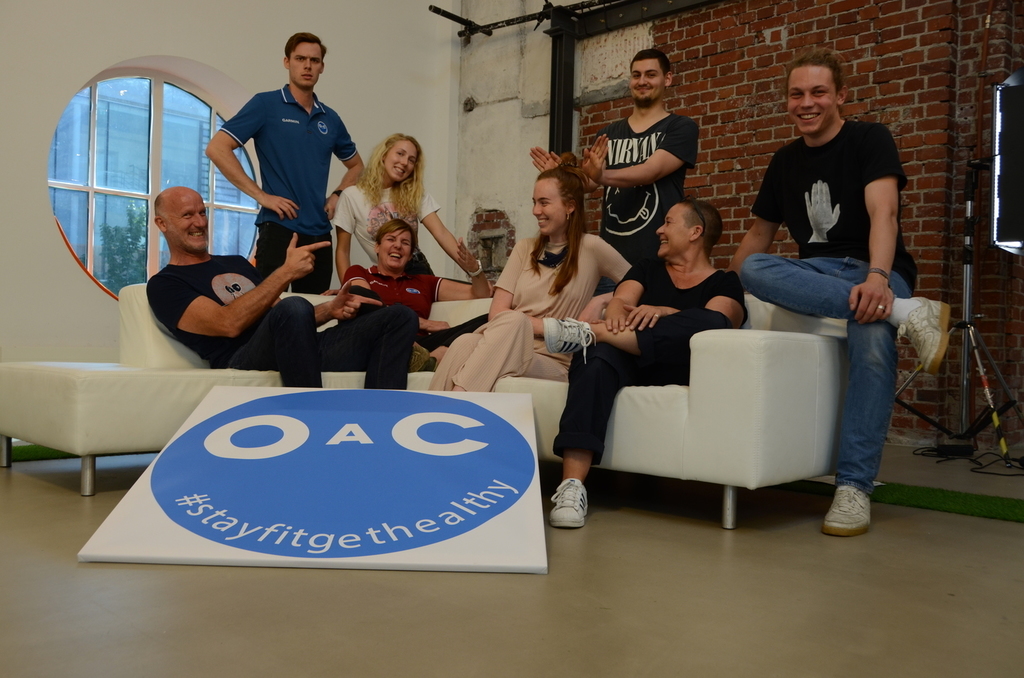
Get involved
Nehme Sie mit uns Kontakt auf
Wir freuen uns auf Ihre Unterstützung und Ihre Fragen und Kommentare.

